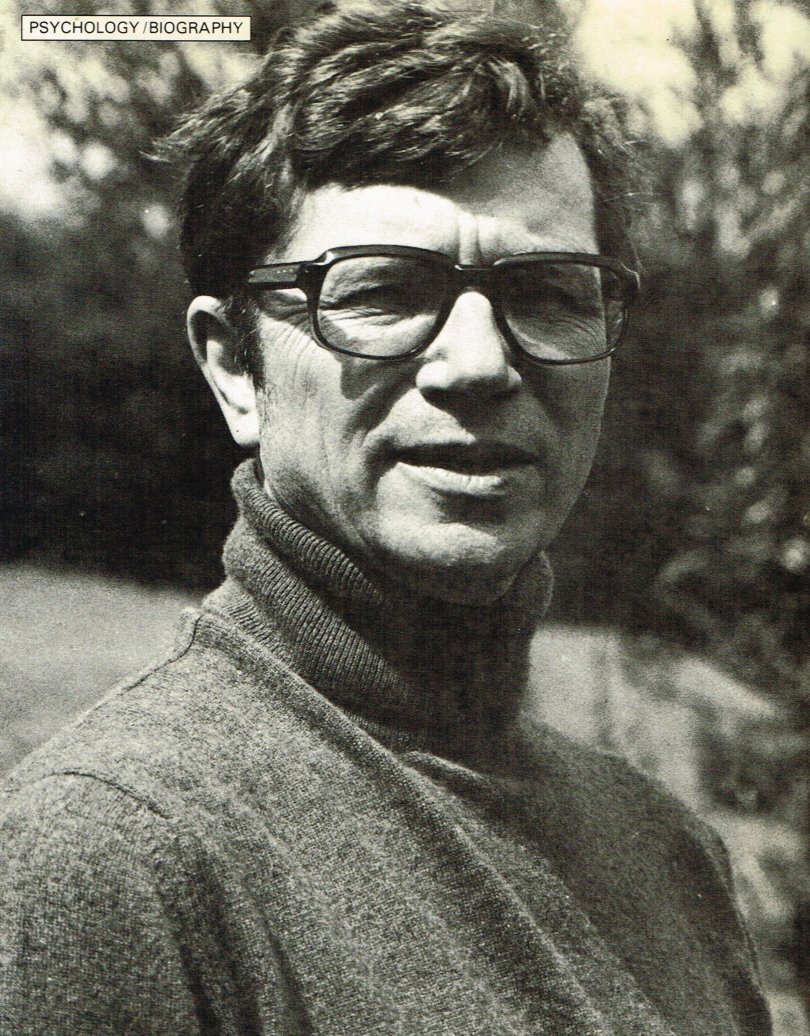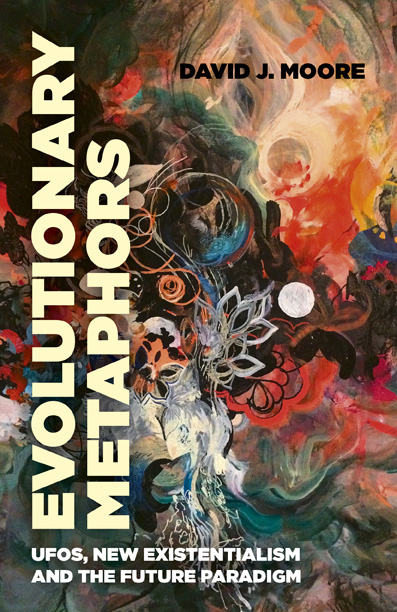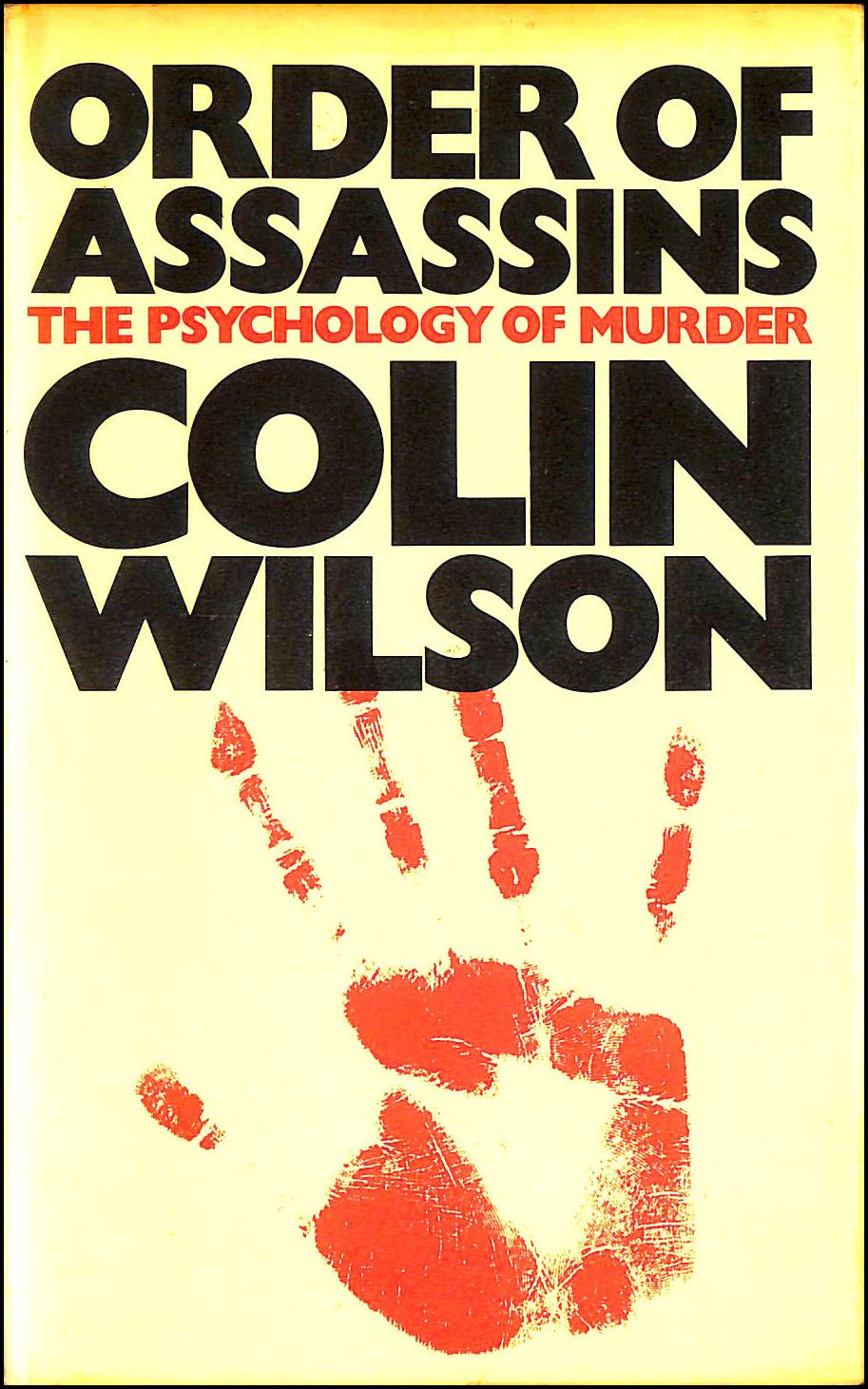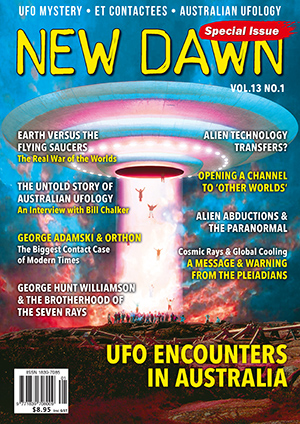In 2019, I read Paupers’ Press’ latest release, Colin Wilson’s ‘My Interest in Murder’. Although a short book at 40-pages, I kept a notepad close to hand and jotted down some reflections on Wilson’s many books on murder, most of which I had read. These included: The Criminal History of Mankind, Order of Assassins, A Plague of Murder, as well as the many ‘Mammoth’ crime editions published by Robinson. It quickly occurred to me that one could attempt a general synthesis of his overall philosophy with his works on criminology. I saw that the two ran side-by-side, complementing and reinforcing each other. Consequently, my notes became so substantial that I summarised my findings in this informal essay. It wasn’t until Easter 2022, however, that I revisited this article after two encouraging comments on my original piece. I was moved by these comments to revise and update my originally rather spontaneous musings into a more streamline and — hopefully — pleasurable and insightful read, despite its morbid subject.
‘My Interest in Murder’ was first penned as the Introduction to Wilson’s 1972 book, Order of Assassins, but was shelved by the publisher in favour of an alternative preface. Order of Assassins explores the psychology of murder and presents a uniquely stimulating and evolutionary interpretation of the human mind, as well as some of its darker expressions.
Although ‘My Interest in Murder’ is essentially the size of a pamphlet, it is not lacking as a substantial autobiographical reflection on just how and why Wilson became so fascinated by the subject of criminality and criminal psychology. But like anything Wilson wrote about, he always attempted to go beyond the limitations of the self-defeating, pessimistic mindset that has increasingly plagued the late 20th century and much of the beginning of the 21st. What Wilson penetratingly revealed about the criminal mind, however, is something closer to home for many of us non-murderers: the sense of frustrated energies of the creative individual who finds himself in a society increasingly alienated from its vital reserves — its cultural wellsprings. This was a theme which Wilson had already explored at length in his first book, The Outsider, in 1956.
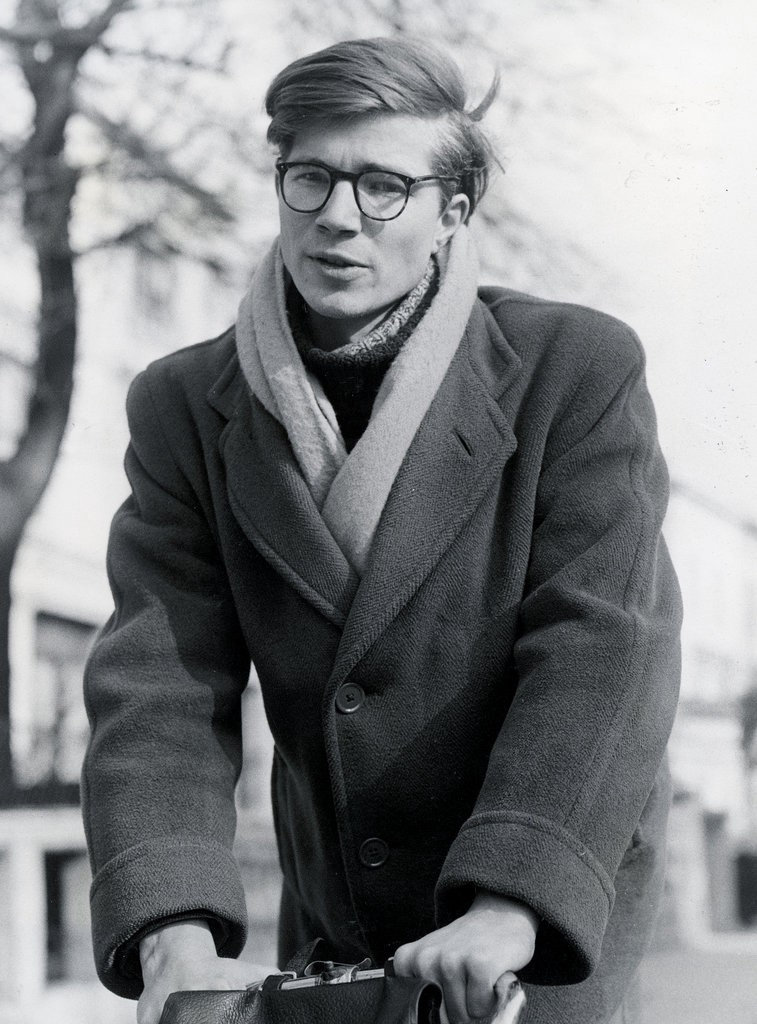
The creative process and the inner tensions that may lead to an evolutionary shift in consciousness — a breakthrough, in short — and the self-defeating collapse of values, which results in nihilism and breakdown, is central to Wilson’s philosophy. However, his fascination with murder, and its psychological and philosophical implications, are to be found in his first creative efforts in the form of the novel, Ritual in the Dark (1960), which took nine years to write. But it was his later novel, The Glass Cage (1966), that became for Wilson the “favourite among my own novels.” The Glass Cage is the crystallisation of his philosophy and the culmination of his early researches into criminology and mysticism — the two extreme poles of human experience; the former emerging from a denial of values — moral, philosophical, even cosmological and religious — and the latter a recognition of affirmation, cosmic consciousness, and universal yea-saying.
For Wilson, these tensions were ever close to the surface, especially in his teenage years and early twenties. He was determined to become a writer despite the banalities of his working-class existence, and declared that he would “make literature out of my revolt”. He had “tasted the pleasures of the imagination and intellect” and “wanted the pleasure to pursue them”. This lead to his first writing venture — Ritual in the Dark, which was originally titled after the Egyptian Book of the Dead as Ritual of the Dead. The novel is timeless, pacey and presents a fascinating reflection on the themes of frustration, alienation, and — importantly — outsiderism. It is hard to avoid comparisons with Dostoevsky’s Crime and Punishment, with the protagonist being torn between the intensities both within himself and the often shady people with whom he’s become embroiled.
In contrast to Dostoevsky’s Raskolnikov, however, Wilson describes his protagonist — Gerard Sorme — as a ‘Simple Simon’. Sorme is found wandering around London after receiving a large inheritance and, in his aimlessness, meets various eccentrics and intensely driven individuals, each with a backstory of semi-mystical visions which end up defining them, for better or for worse, as outsiders. Individuals who, because of their very intensity and thirst for more encompassing experiences and truths about human existence, make up a social minority.
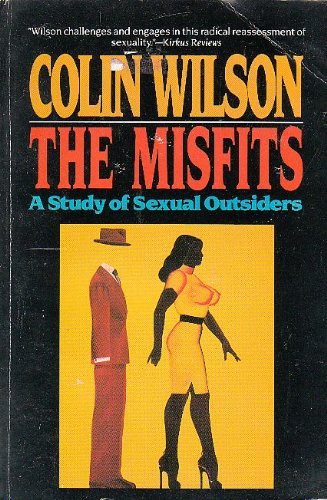
Turning to Wilson’s later book, The Misfits (1988), which is advertised as a study of sexual outsiders, it is clear how he had his own ‘Simple Simon’ moments. Wilson admits in this book that he slowly (some would argue too slowly) realized a broad-shouldered, deep-voiced and intensely masculine Charlotte Bach was, in fact, a Hungarian cross dresser and conman called Karoly Hadju. Bach first caught Wilson’s interest when he or she forwarded him a manuscript which posited an evolutionary theory based upon a dynamic and creative tensions or interplay between the male and female psychological forces within each individual. Hadju — or Bach — was, a character that could have been lifted straight out of Wilson’s novels.
It was through Wilson’s such meeting with liminal characters that lead him to explore further the psychology of the outsider or misfit. It is therefore not surprising that this should lead to an interest in criminality and the motives for such extremities of experience, whether through sexual fetishes or indeed murder. After all, what is imperative to all such outsiders is a search for intensity of consciousness — an insight or control over one’s emotions, environment, or having achieved some sense of an ultimate reality from which to act meaningfully.
Wilson’s own interest in murder is reflected in Sir Arthur Conan Doyle’s character John H. Watson, who observed in Sherlock Holmes that he appeared “to know every detail of every horror perpetrated in the century”. Wilson, commenting upon Watson’s remark, responds: “And why not? — for such knowledge was a part of his working equipment.” Wilson notes that by working with such morbid and extreme material, he felt like a “pathologist, working with unpleasant material, but viewing it with detachment”. And, in some alchemical sense, turning over the darker elements of human psychology and transmuting it into its opposite: affirmation consciousness instead of self-destructive criminality.
For Wilson, the sexual impulse and the impulse for murder or sadism are all driven by an intense stimulus — a release of enormous amounts of pent-up energy. This energy, in its raw state, is neither negative nor positive, but pure potential. In other words, the same forces that underlie these extreme drives could be used for great acts of creativity. But such negative expressions as murder or absurd sexual fetishes result when dammed-up potential has collapsed in upon itself.
Wilson writes:
“[T]here are certain people who possess the potentiality of creation, of purposive action; if this is frustrated it turns rotten. The mind is like a forward flowing river; if it is dammed up, it will turn the land around it into a swamp.”
The trajectory from Wilson’s earliest work is not driven by a morbid obsession, but a recognition of the creative spirit in its more general sense. The Outsider dealt with ballet dancers, poets, mystics, and esoteric teachers like the Russian-Armenian G.I. Gurdjieff, who was obsessed with de-automatising man and introducing a level of freedom rarely found in the ‘triviality of everydayness’. I’d argue that Wilson was not so much a ‘Simple Simon’ — far from it! — but a man of immense openness that enabled to him to actualise in his work what the philosopher Alfred North Whitehead described the initiatory experience of all true existentialists. Whitehead argued the true thinkers should make it their job to experience everything; drunkenness, sobriety, depression, ecstasy, and so on. None of this, of course, is pursued out of mere hedonism or sadism, but as an attempt to understand the extent of the human instrument throughout its entire existential spectrum. Only then, Whitehead and Wilson would likely argue, could you comment upon the human condition in any general sense. Not as an ivory tower intellectual, but as one on the frontline of life, so to speak.
Murder emerges out of an immense damming up of frustration which then bursts out as a destructive and utterly pointless act. But it is these implicitly creative potentials that Wilson was so fascinated by. Ritual in the Dark resulted from Wilson’s own frustration, much like other classic books — Fernando Pessoa’s The Book of Disquiet, Emil Cioran’s On The Heights of Despair, and Jean Paul Sartre’s Nausea. These were attempts to describe an essential feeling of alienation and the slippery texture of reality. But, unlike these authors, Wilson was driven by something altogether more optimistic and life-affirming.
Initially, he wrote out of a basically emotional revolt that expressed itself creatively. Once the circumstances in his life lightened up — and his naturally cheerful temperament reasserted itself — the tone and philosophy of Ritual in the Dark changed correspondingly. This in turn meant that the protagonist’s response to murder became more nuanced. A sensitivity or basic will-to-health appeared in Gerard Sorme who, albeit it late on in the novel, recognised the murderous act as truly sick and insane. These murders, Wilson wrote, were a “gesture of revolt” against reality — a reality, that the murderer had completely lost touch with, but was slowly dawning on the more healthy-minded Sorme, and, in turn, the author.
The gesture of revolt against reality underpins Wilson’s study of criminology. In low moods we experience a weak grip on reality, and if we allow ourselves to sink yet further, we perceive from the equivalent of a worms-eye view of existence which, in the murderer, includes the reality of other people. Suddenly, the world seems to us meaningless and uninspiring, but, beneath all this, a resentment builds and seeks some sort of cathartic expression. But, as the individual’s grip on reality fails, so does his value judgements — and such ‘cathartic expressions’ become misleading and self-destructive. Murderers and criminals have fallen down this hole, becoming stuck in a loop where reality becomes increasingly unreal, which in turn requires increasingly extreme experiences to evoke any such sense of what the psychologist Pierre Janet called the fonction du reel, or reality function.
“The real present for us” wrote Janet, “is an act of a certain complexity which we grasp as one single state of consciousness in spite of this complexity, and in spite of its real duration, which can be of greater or lesser extent,” meaning that reality and the perception of it requires a fundamental grasping of complexity — a complexity that is increasingly low-resolution when one is feeling low or depressed. Perception is buoyed-up by energy, and, consequently, the more energised one feels, the more one can grasp complexity and the richness — and inherent meaning — of life.
One thing that has always interested me is how we observe ourselves in certain moments. As I’ve gotten older — I’m now 35 — it’s becoming increasingly obvious just how much we take for granted in our lives. Each moment — no matter how banal — offers itself up as a revelation, especially when considered in retrospect. For instance, I’ve worked in several industries, ranging from office work, apple picking, working as a drayman and working in various pubs. I’ve also written and edited several books. It was becoming acquainted with Wilson’s work that I felt an immediate sense of kinship. I too had sat on trucks and lorries for long journeys and had worked in several offices. On the one hand, I enjoyed the freedom of being out on the road, and on the other, I enjoyed stretching my intellectual muscles in office environments. However, I felt an enormous constriction on my energies in both — whether mental or physical. But after much meditation, I’ve now examined my experiences for more general and transformative insights or themes that revolve around something interesting or potentially helpful about the human condition. This is my debt to the work of Wilson.
Around about February and March 2018, I was working as a drayman during the ‘Beast from the East’ storm. A cold wave had blown over from Russia and North Asia, covering most of the West Midlands in precarious snowdrifts and unusually freezing temperatures. I’d get up early each morning and trek down a long and treacherous hill — Standhills Road in Kingswinford — avoiding the many opportunities for slipping over or filling my boots with powdery snow. Once I had arrived at my workplace, a cold room full of plastic and steel casks of ale would greet me each morning. A forklift truck driver would then prepare to stack up the van, which I attempted as best I could in the biting cold and slippery, black-ice-covered surfaces. Eventually the casks would be secured in place and we’d head out to the various pubs and then reverse the process, hoisting down the casks into the dark cellars using a fraying piece of rope with a hook attached to the end. The snow made it enormously difficult to push eighteen-gallon barrels. Often snow would gather up in front of the barrels as you pushed them, and you’d have to get around and kick out a path ahead of yourself.
After a long day of unloading and loading, I’d be exhausted. Again, I’d have to walk back up Standhills Road. This was made all the more difficult, as you’d have to put in twice the effort to walk up a hill than down it. But occasionally I’d take a shortcut and, each time, I’d pass a warm and inviting salon. Inside, beautiful women were blow-drying hair and manicuring fingernails.
In contrast to my day battling with steel casks and accompanying a grumpy chain-smoker, there seemed an obvious difference between men and women. Feminists had missed an important point about manhood. Suddenly — in my exhausted state — I glimpsed a world that appeared delicate and enchanting, altogether removed from the grim machine-like noise of working with heavy machinery and beer. For instance, I could understand why men working with tarmac or scaffolding would leer at the opposite sex. It wasn’t because they were sexist or sex-obsessed, but because the opposite sex represented another world of values.
Obviously, this is a controversial admittance in our politically saturated times. But I am convinced that this is commonplace enough that it is difficult to argue with. After all, political correctness is usually only correct in one dimension — politics. Psychologically, spiritually, experientially, it might be incorrect, impracticable and impractical, and exposing the limits of a political ideal. Life is not lived for political or economic reality alone, no matter what Aristotle or Karl Marx claimed contrariwise.
A few months later I began working in an office. This work demanded far more attention to detail and a different level of concentration. Initially, it was difficult to adjust to the people who have worked in offices for several years. Each day I’d sit at the same desk writing various bids for council jobs. The other employees baffled me as much as I probably baffled them. And not only did the work not engage me — writing about Health & Safety and fire extinguisher codes is intensely boring — the whole environment was vast contrast to working outdoors with burly, outspoken men, that I felt like I was trapped in a Kafkaesque nightmare of pedanticism and bureaucracy. I’d secretly yearn for some chaotic event to break the monotony, whether it was a wasps’ nest falling through the ceiling or a member of staff revealing themselves to be a closet Nazi.
I had had a similar experience while working at an academic bookshop in Nottingham. The manager was insufferably short-tempered and petty-minded. Often, her accusations of misconduct or incompetency turned out to result from her own oversights or misinterpretations. Again, I found the people I worked with lacked a certain humility — or indeed sanity — that I’d found in manual labouring work. Feelings and thoughts seemed to be bottled up and would express themselves through passive aggression and the odd cutting comment. All this transferred itself to me, and I noticed that to calm down after work, I’d watch a film about boxing or listen to gangster rap.
This digression into my experience has been an attempt to point out how — and in what form — energies can frustrate or be redirected into darker regions of our psychology, collectively or individually. Our day-to-day lives quickly reflect our feelings and those around us, also pent-up and frustrated, may begin to act out or project their unhappiness onto others. This, in turn, can also be taken into oneself unconsciously, and before you know it, you are reflecting your environment. Tensions escalate and the need for expression presents itself, albeit it in a form that is often unrecognised or unaddressed. This logical regression to an outburst of crime is made quite obvious, but relatively few of us are unbalanced enough to commit anything seriously consequential such as taking another person’s life.
Here I am reminded of a question levelled at the Indian mystic, Sri Nisargadatta Maharaj, about the purification of the mind. Nisargadatta used a brilliantly phenomenological and penetrated analogy, saying:
“Basically, man is afraid. He is afraid of himself most. I feel I am a man who is carrying a bomb that is going to explode. He cannot diffuse it, he cannot throw it away. He is terribly frightened and is searching frantically for a solution, which he cannot find. To me, liberation is getting rid of this bomb. I do not know much about the bomb. I only know that it comes from early childhood. I feel like the frightened child protesting passionately about not being loved. The child is craving for love and because he does not get it, he is afraid and angry. Sometimes I feel like killing somebody, or myself. The desire is so strong that I am constantly afraid. And I do not know how to get free from fear.”
In the frustrated criminal — or in the outsider battling with an inner conflict between absolute affirmation and absolute denial (mystical yea-saying and the negation of existence) — it is common to feel as if one is “carrying a bomb that is going to explode”. Nisargadatta compares the mind two water and honey — the European mind, steeped in logic, is like water; affected by any slight disturbance. Honey — which Nisargadatta compares to the Hindu mind — is disturbed but quickly returns to a state of immobility, of inner-stillness. The more de-energised the mind, the more sensitive is the water of the mind, but the more energised, the more coherence and inner-resilience that buffers such a disturbance.
We are here talking about levels of frustration and their potential consequences — creative or destructive.
One day, while I was working in the bookshop, an electrician arrived to fit some new strip lights. That day, the atmosphere was uniquely dull; the streets were empty, the sky overcast, and dreary and syrupy acoustic music played incessantly in the background. The air seemed to be charged with some sort of life-draining static. After an hour of unbearable tedium, the electrician caught my eye and, probably feeling so bored as to provoke a reaction in me, requested I change the music to death metal (he requested a band called Cannibal Corpse).
This took me aback, as I felt much the same. The environment seemed to demand chaos — a force of energy to stir-up a life-force that had become stagnant and even toxic. Extremity in the form of heavy metal — or even Beethoven — seemed to be the answer to our inner-frustration with the dullness of the job at hand. Indeed, everyone knows children are much more impatient than adults, and during monotonous journeys kick their legs or repeatedly ask, ‘Are we there yet?’. They are attempting to stir-up or spend latent energies that are being dammed by the seemingly endless waiting (time passes much slower for children than adults) and monotony of the journey.
The vitality of a child is redirected and siphoned off into displacement activity, which is defined in a popular dictionary as an activity “that seems inappropriate, such as head-scratching when confused, [and is] considered arising unconsciously when a conflict between antagonistic urges cannot be resolved.” Murder, too, is arguably a form of displacement activity; an attempt to express or channel latent energies into a destructive act. Serial killer Henry Lee Lucas seemed to express this when he told the police that he was bitter at the world and killing someone, for him, “was just like walking outdoors.” Murder had provided him with a sense of reality that had become eclipsed by his own bitterness toward the world.
For many of us, simply walking outdoors can offer us such a release of pent-up energy. Recently I undertook a four-hour walk from Penzance to Porthleven. When I finally arrived, I found I enjoyed it far more than if I had driven there or simply caught the bus. The effort of walking outdoors had amplified my sense of values, my ability to as it were taste experience. For Lucas, this would have not been enough; negative emotions and frustrations had too eroded his grip on reality for him to appreciate anything so ordinary. His tastes — or more over his inability to taste experience — had become deformed and murder became the only form he could ‘walk outdoors’. Like any alcoholic, the only way he can feel his emotions is through increasing the quantity of his indulgence; a negative feedback loop that is ultimately self-defeating. We could say the same of sex and extreme fetishes that have distorted the basic innocence and pure essence of sex and of its higher expressions in lovemaking. All these extremes are attempts to grasp an ever-fading sense of aliveness, and to escape the worms-eye-view of low-pressure consciousness.
According to Wilson, reading about murder reminds us forcibly that we could easily misdirect our energies. This is not to say that most of us could easily become murderers — but simply that we can easily sink into states of passivity in which we require more extreme forms of stimulus to evoke a basic sense of aliveness. A violent act such as murder implicitly suggests that the killer has a low estimation of the meaning of his own life, which, in turn, is projected upon his victim and acted out as a basically pointless and anti-creative activity.
For Wilson, the purpose of such novels as Ritual in the Dark and The Glass Cage is to “confront the two extremes: the mystic and the criminal: the man whose sense of the goodness and worth-whileness of life is constant and fully conscious, and the man whose self-pity and lack of self-belief have driven him to expressing his vitality in the most negative way he can find.” Both novels portray the murderer as a failed mystic in the sense that their violent energies have usurped their emotions and expressed themselves in a profound act of life-negation.
Insightfully, Wilson describes the murderer in The Glass Cage, as a man of “immense and violent energies and appetites” that have curdled and express themselves negatively. He continues:
“[His] conscious attitude to life is so negative and defeated that they cannot find ordinary expression. When he eats, he eats ravenously, with the sweat pouring down his face; when he drinks, he gulps it down until he is unconscious. And when he has sex, all the vast energies roar out like a volcanic explosion there is a desire to eat, to drink, to entirely consume his sexual partner. If he possessed the power to remould his personality to express these energies positively, he might be a Michaelangelo or a Beethoven.”
None of this, of course, is a defence of the act of a murder, or even a celebration of a murderer’s innate potential for genius. Instead, it is a recognition of intensely frustrated energies that could have been put to good use had they found a more fulfilling and evolutionary outlet. The problem with destructive acts is that they are self-cancelling and fraught by diminishing returns — nobody gets anywhere by murder. It is an ultimately devolutionary act and, once the law catches and prosecutes the criminal, his life is over and more often than not the killer attempts suicide.
If one can get past the savagery of murder, then it is quite easy to see how that in our own moments of frustration — whether it’s exhaustion after a hard day’s work, or a sense of diminishing returns in life — we might, too, chose a destructive outlet. It is precisely in these experiences which can undermine our sense of values, of our general sense of a larger meaning to life. The murderer has simply abandoned all such scruples and has declared his statement on life — that it is ultimately meaningless and not worth the effort to elevate, or to pour our energies into producing great art or a loving family environment.
My own experiences have been ordinary enough to share. And I suspect they are general enough to be familiar to many of my readers. Ultimately, this article has explored what Wilson called ‘duo-consciousness’ — that state you find yourselves in when you are in bed during a cold rainy day and know you have to get up in five-minutes. Duo-consciousness is that heightened savouring of warmth and comfort beneath those sheets. This state ceases to affect us on weekends when there is no great demand to get up early. As our mind rests in a type of one-sidedness, we cease to enjoy the moment — the contrast between a warm, comfy bed and the harsh, cold outside world. All this is abruptly changed when we are awaiting the alarm-clock on a busy workday…
The psychological mechanism of duo-consciousness can be accessed by our very reading about such morbid subjects as murder. We can read accounts of horror and tragedy as a sort of mirror, contrasting our more coherent and stable lives against those nightmarish worlds of true crime. Effectively, this reminds us that our lives could be a lot worse than they are. The act of reading true crime is, for Wilson, a means to “throw light upon its opposite: the passion for order, creativity, sainthood.”
‘My Interest in Murder’ is a fascinating study of the basically existential and evolutionary purpose of true crime writing. Wilson wrote the book in the spirit of pleasure and good faith; as an attempt to stimulate duo-consciousness in the reader, a way of ‘throwing light upon its opposite’, and to ignite the spirit to improve our own lives and those of others. Reading about criminality helps us to attain a firmer grip on our own reality — a grip that enables to climb to higher levels of consciousness and contribute to our own inner-development and creatively engage more fully with life.

